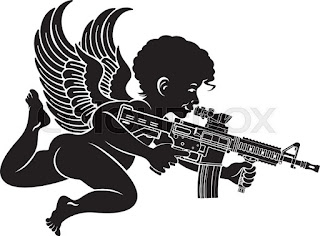I read two books recently, back to back, and as dissimilar as they are, what they had in common was voice. Dennis Lehane’s World Gone By, from 2015, and Elmore Leonard’s The Hot Kid, 2005. I’d never read either book before, clearly an oversight. I must have been looking in the other direction. I’ve also never thought of Lehane and Leonard as being much alike, as writers. Not that they’re unalike, completely, but they’re very individual.
Here’s
what. Both novels are period pieces, World Gone By the 1940s of wartime
Tampa, The Hot Kid the tail-end of
the Roaring 20s, and the rise of celebrity gangsters like Dillinger and Pretty
Boy Floyd. Lehane’s book is the third in
the Coughlin trilogy, and if you know the back story, you won’t be surprised by
black comedy or the heartbreak of Fate.
Leonard’s book isn’t exactly a sequel, but his hero is the son of a
Marine blown up when the
There’s a natural process of myth-making in both novels, slightly more self-conscious in the Leonard, because some of the boneheads in his story are trying to manufacture themselves as public enemies, and make the front page – Joe Coughlin, in World Gone By, is trying to live down his previous lifetimes. The Hot Kid is relaxed, and sort of ballad-like, which makes a certain sense, when you’re reminded Woody Guthrie wrote a song about Pretty Boy Floyd, and turned him into a Robin Hood of the Dust Bowl, but Leonard’s book isn’t romantic, even if some of the supporting cast are fueled by romantic delusion. Lehane’s book is melancholy, but that’s a different thing, nostalgia it ain’t. Joe Coughlin understands the distinction.
The word I want to avoid here is elegaic. Neither of these guys is composing a swan song. And whatever’s going on is very much of the moment. All the same, the voice they’re using is what you might call the Epic Familiar. I know I’ve tried to explain this previously, as a narrative method. It’s the voice Jim Harrison uses, in Legends of the Fall, or Larry McMurtry, in Lonesome Dove. Maybe, to a degree, T.H. White, in The Once and Future King. I think it imposes itself – or you can’t avoid it – because of the largeness of story. You scale up; you fall into cadences that evoke the Homeric. Interestingly, you don’t hear those echoes in Don Winslow’s current City trilogy, which is drawn directly from the Iliad and the Aeneid. He keeps it intimate. It’s an intentional choice, and I think in Winslow’s case, more a matter of dialing it down. Dialing it up, is what Lehane and Leonard are doing.
Lehane has done it before.
Achilles
is offered the choice, also. To die
young, and have undying glory, or to live into old age, and sit by the hearth,
to be forgotten by the sons of men. We
know which fate he chooses. You could
contrast Joe Coughlin, in World Gone By,
and Carl Webster, in The Hot Kid, by
pointing out that Carl is young, and tempted by fame, while Joe’s been there,
and done that, and knows better. They’re
not overly familiar, or generic, but
like Homer, on the windy plains of
































